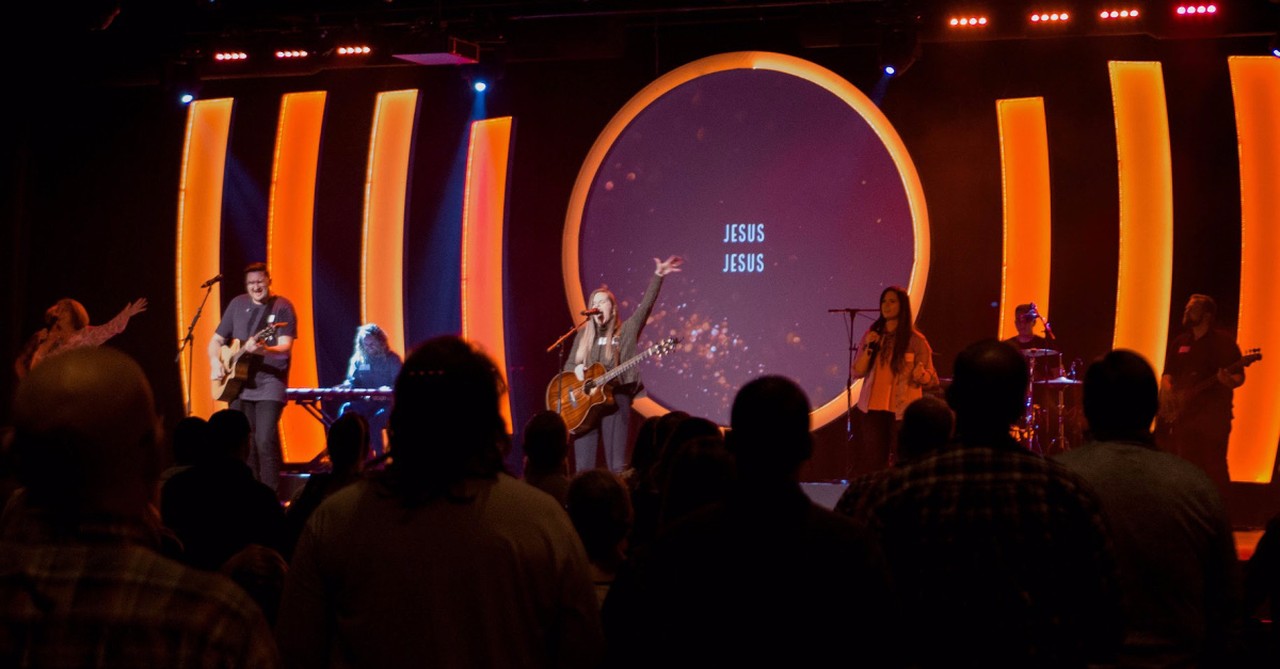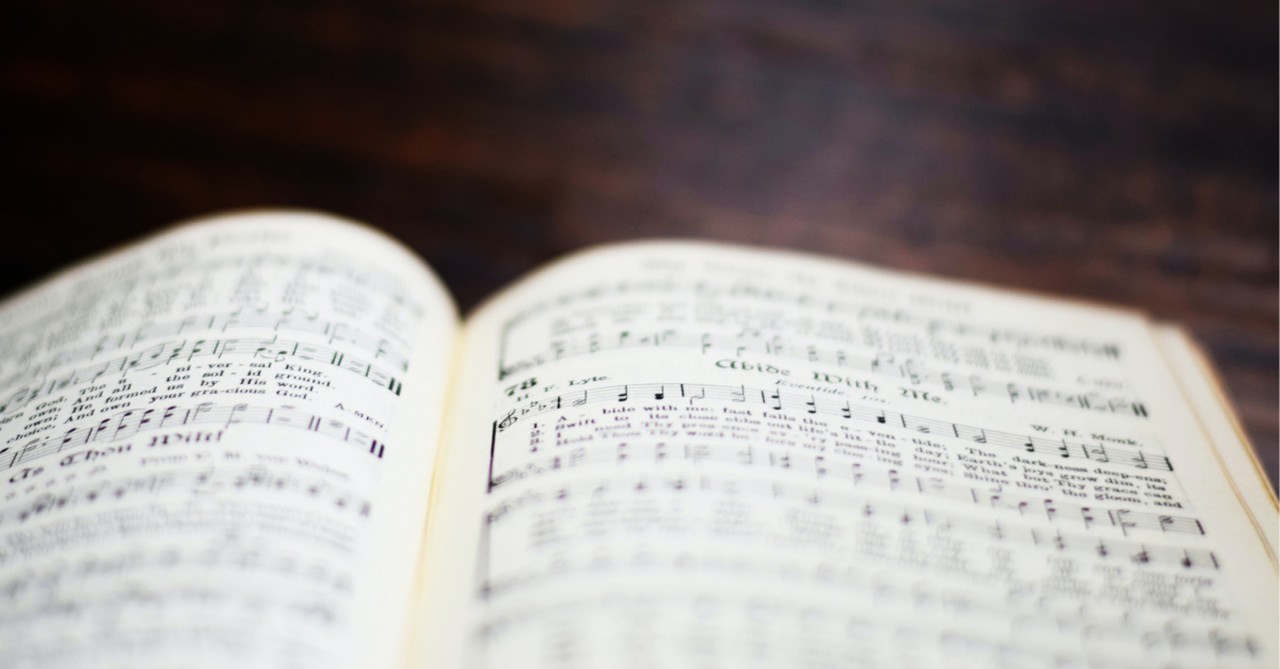
The songs chosen for praise and worship services have a unique flavor and flair that is deeply reflective of how each church is comprised. Older congregations have a style. Younger congregations have a style. Traditional churches have a style. Contemporary churches have a style. Pentecostal churches have a style. Baptist churches have a style.
But when it comes to the songs used in a praise and worship service at church, are there guidelines for what is and is not appropriate? Is it just a matter of personal preference, or does the Bible provide any insight? How can you discern if a song is appropriate for worship at church?
Think about this:
- There are plenty of songs that are musically or emotionally attractive but are not theologically sound.
- There are plenty of songs that have solid theology, but are long and wordy, or hard to sing.
- There are plenty of songs sung in churches that were written by unbelievers or people whose lives are being lived in disobedience to God’s Word.
- There are plenty of songs sung in church that aren’t even about God!
The truth is, both natural wisdom and spiritual discernment are necessary in choosing which songs are appropriate for worship at church. Remember, praise and worship are holy to the Lord. That’s why it is important that—above all else—His plan for praise and worship is put first.
Photo Credit: Unsplash/John Price
Is This Song Appropriate for Worship? 3 Questions to Help You Know

Is This Song Appropriate for Worship? 3 Questions to Help You Know
SLIDE 1 OF 5
Both praise and worship, which are two separate ways of honoring the Lord, are God-centered and God-focused. That is because praise and worship are both forms of grateful, humble ministry to the Lord.
There isn’t anything you could ever give God that He needs, but He does desire your praise, and you can always give that to Him.
Many believers misunderstand the purpose of praise and worship and think praising God is all about the “perks” of His presence, but then wonder why they don’t seem to have the same dynamic with God that they see in the lives of others.
- The purpose of praise is: Offering a sacrifice of thanksgiving to honor God. Seeking the benefits of praise is a wrong perspective. There are many benefits built into worship through God’s power, but He alone is worthy, and your praise acknowledges that truth.
- The true heart of worship is: The ministry of honor due to the Lord. In the Bible, worshippers are always seen bringing themselves low in order to lift high the Lord. Worship is using your body in humility to acknowledge God’s glory and greatness over your own.
- The foundation of both praise and worship is: The Word of God. God always partners with His own Word (Jeremiah 1:12). If a song does not have a clear rooting in the Word of God, it is rooted in something else.
The Word of God, the heart of gratitude, and the lifting high of the Lord should be evident in every song that is sung in church, and it is where every discerning question should start.
Photo Credit: Jon Tyson/Unsplash
Question 1: Who Is Being Worshipped in This Song?

Question 1: Who Is Being Worshipped in This Song?
SLIDE 2 OF 5
If you cannot readily tell that the Lord is being praised, then the song isn’t a good one for corporate worship—and maybe not for any time of worship. Many songs sung in church retell stories from the Bible, or ramble about someone’s personal faith journey, or even make declarative statements from the Bible that are personally empowering, but aren’t actually praise or worship.
Examine the lyrics of your favorite praise or worship song.
Ask this: What is really being said?
What message is the author conveying? Who (or what) is being really being worshipped—an idea or concept? (We can dance in the river! You call me out upon the water!) A perk of God’s power? (Miracles! Blessings!) The worshipper themselves? (I am loved! I am chosen!)
Some Christian songs are great for encouraging you to fix your mind on Jesus, or helping remind you of His goodness, or bolstering your faith with a testimony - and those are all good things. But they aren’t praise or worship.
True praise and worship have true spiritual power, and God has given His people special access to His presence through their praise. (Psalm 100:4)
Bottom line: If you can’t clearly tell that God alone is the subject of the song, it’s not a Sunday morning song.
Photo Credit: Kalisa Veer/Unsplash
Question 2: Is This Song Appropriate as Private Worship or Public Praise?

Question 2: Is This Song Appropriate as Private Worship or Public Praise?
SLIDE 3 OF 5
There isn’t necessarily a “right” or “wrong” way to praise and worship the Lord, but there is a Scriptural way—and that matters because worship and praise are what God says they are, and His Word is full of wisdom and instruction for His people to seek and follow.
When it comes to discerning if a song is appropriate for a Sunday church service or corporate setting, it is crucial to examine the song’s verses and chorus to see if it has more “me” focused versus “God” focused content.
Ask this: Who gets more attention in the lyrics?
Not every song that is wrong for a Sunday morning is wrong for everything else.
Some songs are deeply personal and self-reflective to God, or they bring you into a place where God can speak to you, but that’s not the true definition of praise and worship because worship is ministry to Him.
And, for a church service, those songs of personal ministry to you are less important than songs that truly praise and worship God when believers come together.
Both public and private worship are crucial to your faith as they both provide different spiritual dynamics, but in a corporate gathering, there are people coming in from all different points in their faith journeys, so the songs should be reflective of that dynamic.
Bottom line: Just because it ministers personally to you, doesn’t mean it will translate to someone else. In church, keep the focus on God.
Photo Credit: ©iStock/Getty Images Plus/Sakorn Sukkasemsakorn
Question 3: Is it a Psalm, Hymn, or Spiritual Song?

Question 3: Is it a Psalm, Hymn, or Spiritual Song?
SLIDE 4 OF 5
In Ephesians 5:18-20 the Apostle Paul wrote:
“…be filled with the Spirit. Speak to one another in psalms, hymns, and spiritual songs, singing and making melody in your heart to the Lord. Give thanks always for all things to God the Father in the name of our Lord Jesus Christ…”
In the Christian tradition, “Psalms” are understood to be those songs based clearly and exclusively on the book of Psalms or songs written throughout the Bible. “Hymns” are those songs written from or about the Word of God where the Scriptural context is clear.
The term “spiritual songs” originates from the Hebrew word for praise, “tehillah,” which is translated as a “new song” that is unique and personal to you. In fact, tehillah praise is, specifically, a “spiritual song” you spontaneously write from your spirit and sing to the spirit of God in your private times of worship.
Each of these has a place in corporate worship service, but the harsh reality is that when it comes time to choose songs for church, many worship leaders look for what is popular over what is praise.
Ask this: Does this song minister thanksgiving to the Lord as a Psalm, hymn, or spiritual song?
God’s design for praise and worship is infused with power, but too many churches simply accept that just because a song is emotionally moving or popular, that it is anointed worship. That simply isn’t true, Scripturally speaking.
In fact, no words anyone could ever write will hold more power than God’s own Word. God partners with His Word and that’s why songs of praise and worship must reflect agreement with His Word.
Photo Credit: Zack Smith/Unsplash
Why Does it Matter What Songs Are Sung in Church?

Why Does it Matter What Songs Are Sung in Church?
SLIDE 5 OF 5
One of the primary missions of all believers is to, “…go and make disciples of all nations, baptizing them in the name of the Father and of the Son and of the Holy Spirit, and teaching them to obey everything I have commanded you.” (Matthew 28:19-20, NIV)
In addition to teaching and preaching from God’s Word, worship and praise are ways that people learn about God and come to understand more truths about Him.
Newly saved people in addition to the lost come into a church sometimes without any context of faith, and songs of worship provide faith-building theology that must be Biblically sound. Even Christians who are going through a hard time in life or lack depth in their understanding of Biblical principles need to learn how to lift high the Lord in praise to grow in their faith.
True praise and worship are faith-building strategies.
- Psalms, hymns, and spiritual songs laud and extol the Lord’s greatness, mercy, faithfulness, patience, lovingkindness, and power.
- When God’s Word is sung, “faith comes by hearing.” (Romans 10:17)
- Revelation 9:10 says that “…the testimony of Jesus is the spirit of prophecy…” (MEV) meaning your praise declares that what God has done in you, through you, and for you, He will do again for another person.
- Psalm 40:1-3 says that your “hymn of praise” is one many will “see and fear and put their trust in the Lord.” (MEV)
The “style” of praise and worship isn’t the primary issue – fast or slow, traditional or contemporary, lights on or lights off.
The point is to lift high the Lord and minister to Him from a heart of thanksgiving through the sacrifice of praise, and the songs that are sung have everything to do with creating an atmosphere of praise that God inhabits.
Photo Credit: ©iStock/Getty Images Plus/Jantanee Rungpranomkorn

Originally published December 06, 2023.







